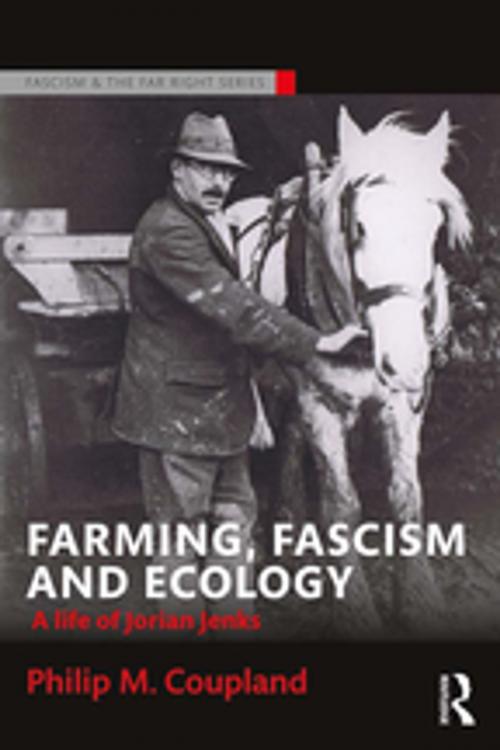Farming, Fascism and Ecology
A life of Jorian Jenks
Nonfiction, Social & Cultural Studies, Political Science| Author: | Philip M. Coupland | ISBN: | 9781317300212 |
| Publisher: | Taylor and Francis | Publication: | September 19, 2016 |
| Imprint: | Routledge | Language: | English |
| Author: | Philip M. Coupland |
| ISBN: | 9781317300212 |
| Publisher: | Taylor and Francis |
| Publication: | September 19, 2016 |
| Imprint: | Routledge |
| Language: | English |
The life of Jorian Jenks (1899-1963) has great potential to upset settled assumptions. Why did a sensitive and intelligent man from a liberal family become a fascist? How did a Blackshirt go green?
The son of an eminent academic, from his childhood onwards Jenks instead longed to farm. Lacking the means to do so, he worked as a farm bailiff and then, in New Zealand, as a government agricultural instructor. Finally, a legacy permitted him to come home and become a tenant farmer. Struggling to survive in the economic depression of the 1930s, he became an author and activist for rural reconstruction. Then, having lost faith in the established parties, he joined the British Union of Fascists. Becoming one of the Blackshirts’ leading figures, he was imprisoned without trial during the war. On his release, Jenks returned to the struggle, this time in the cause of ecology, becoming a pioneer of today’s organic movement and a founder of the Soil Association.
This book draws on an extensive range of sources, a large proportion of which were previously unseen by historians. For the first time, it portrays the private and public life of this unusual man, revealing many hitherto un-glimpsed facets of Jenks’ life.
The life of Jorian Jenks (1899-1963) has great potential to upset settled assumptions. Why did a sensitive and intelligent man from a liberal family become a fascist? How did a Blackshirt go green?
The son of an eminent academic, from his childhood onwards Jenks instead longed to farm. Lacking the means to do so, he worked as a farm bailiff and then, in New Zealand, as a government agricultural instructor. Finally, a legacy permitted him to come home and become a tenant farmer. Struggling to survive in the economic depression of the 1930s, he became an author and activist for rural reconstruction. Then, having lost faith in the established parties, he joined the British Union of Fascists. Becoming one of the Blackshirts’ leading figures, he was imprisoned without trial during the war. On his release, Jenks returned to the struggle, this time in the cause of ecology, becoming a pioneer of today’s organic movement and a founder of the Soil Association.
This book draws on an extensive range of sources, a large proportion of which were previously unseen by historians. For the first time, it portrays the private and public life of this unusual man, revealing many hitherto un-glimpsed facets of Jenks’ life.















